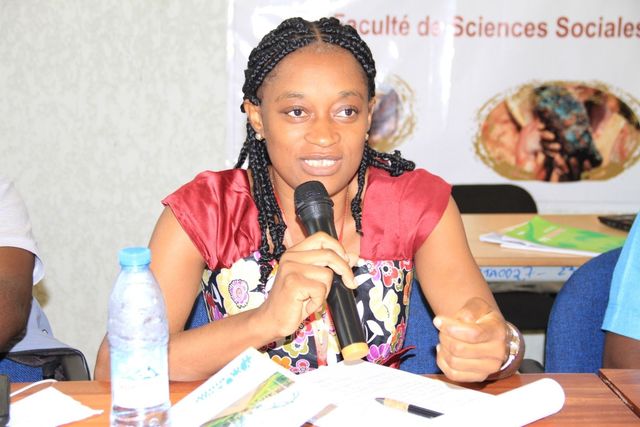Updates from the the Second Session of the historic Intergovernmental Negotiating Committee (INC) on the United Nations Framework Convention on International Tax Cooperation
The Second Session of the United Nations Framework Convention on International Tax Cooperation negotiations continued its focus on Protocol 1, which addresses the taxation of income derived from cross-border services in an increasingly digitalised and globalised economy. Chaired informally by Ms. Liselott Kana, the discussions revolved around the need to redefine nexus rules, reconsider the role of physical presence, weigh net versus gross taxation, determine whether different types of services should be treated differently, and clarify the scope of taxes covered under the Protocol.
A key point of contention was whether the Protocol should extend to indirect taxes such as value-added tax (VAT) or remain limited to income taxes. France, in support of Jamaica, argued for the inclusion of indirect taxes as a means of capturing revenue from the digital economy. Ghana, however, firmly maintained that the Protocol should be confined to income taxes arising from cross-border services, a position that was strongly endorsed by Nigeria and Morocco. They stressed that digital services taxes (DSTs) and VAT operate differently: DSTs tax multinational enterprises (MNEs) as service providers, while VAT is borne by consumers. Senegal pointed out conceptual challenges in the debate, noting that Senegal already applies VAT on digital services and intends to continue doing so, although it prefers DSTs that function as income taxes. The Chair underscored the definitional problem, explaining that what one jurisdiction considers a direct tax may be defined as indirect in another, and suggested that clear definitions of “direct” and “indirect” taxes should be embedded in the Protocol to avoid ambiguity.
African countries were particularly vocal in pressing for updated nexus rules that reflect the realities of digital business models. Kenya emphasised that physical presence should no longer determine taxing rights, advocating instead for the adoption of significant economic presence (SEP) thresholds that capture income generated digitally. Kenya argued that gross-based taxation works for some services while formulary apportionment is better suited for others, but warned against loopholes arising from the classification of “low-margin” services. Nigeria echoed these concerns, describing physical presence as an outdated concept and supporting SEP-based taxation. However, Nigeria clarified that it does not advocate the elimination of physical presence rules but rather their supplementation with additional mechanisms such as SEP and DST. Cameroon, Liberia, and Morocco joined Ghana in calling for international tax mechanisms that would enable fair taxation of MNEs with no physical presence in source jurisdictions. The African Union, aligning itself with the African Group, reminded participants that the Terms of Reference already recognise that existing tax rules are no longer fit for the digital economy and acknowledge the need for broader nexus rules.
The debate also touched on the issue of value creation and how it should inform nexus determination. Kenya argued that value should be linked to economic activity, revenue generation, and user engagement, noting that data collected in one jurisdiction but monetised in another raises questions of fairness in the allocation of taxing rights. Zambia challenged the reliance on users as identifiers, noting that the use of VPNs and digital mobility complicates jurisdictional claims, and suggested that payments may provide a more reliable nexus rule. Senegal proposed a cascading approach in which multiple criteria—such as billing addresses, commercial registration, and IP location—could be used to establish nexus. The Chair redirected the conversation to the core issue: ensuring that MNEs operating without physical presence nonetheless contribute taxes in the jurisdictions where they generate value.
The relationship between SEP and permanent establishment (PE) rules was another area of discussion. Kenya highlighted the shortcomings of existing PE-based treaties, which often prevent taxation of digital services provided remotely. For Kenya, SEP is better suited to capture income derived from the digital economy. Nigeria clarified that SEP is a nexus rule comparable to PE, and not a withholding tax measure, stressing that it should be used to determine taxable presence rather than replace existing provisions entirely.
Questions also arose as to whether different services should be governed by different rules. ATAF argued that intra-group services and automated digital services may require distinct treatments in order to balance simplicity with fairness. Ghana and Nigeria, however, cautioned against prematurely debating rates, insisting that such technical details should not divert attention from the broader policy framework. Kenya agreed that while different services may require different rules, tax rates themselves need not vary. Zambia emphasised the importance of maintaining simple, administratively feasible rules that are resilient to future changes in business models.
The discussions made clear that while divisions remain, there is broad consensus that traditional physical presence rules are inadequate in addressing the realities of the digital economy. African states, with strong backing from the African Union and ATAF, pushed for SEP-based nexus rules and greater clarity in the distinction between direct and indirect taxes. The Chair closed the session by stressing the importance of clear definitions and urging that future discussions concentrate on the taxation of income rather than consumption.
Video links:
1:38:56 - 1:41:39 Kenya. Morning Session. https://webtv.un.org/en/asset/k1o/k1oymar8eg
1:33:12 – 1:35:20 Zambia. Afternoon Session. https://webtv.un.org/en/asset/k1t/k1txvvcwpm
2:38:33- 2:40:33 Ghana Afternoon session https://webtv.un.org/en/asset/k1t/k1txvvcwpm


